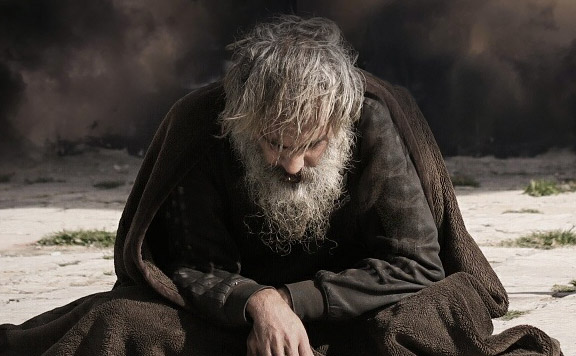This is Part 1 of a series of articles.
There is a wave of books being published to help Christian leaders and thinkers make sense of our current cultural context in the Western world and how to respond effectively to this context: Carl Trueman’s The Rise and Triumph of the Modern Self, Stephen McAlpine’s Being the Bad Guys and David Rietveld’s Being Christian After Christendom immediately come to mind. In different ways Biblical Critical Theory by Chris Watkin and Evangelism in a Sceptical World by Sam Chan (and his smaller companion book, How to Talk About Jesus Without Being That Guy) also fit into this category.
These books differ from their precursors published in the late 1990s to the 2010s[1] in a matter of degree, although there are some subtle shifts of emphasis. This is in part because of the changes to our cultural context, which Stephen McAlpine attempted to put his finger on in his famous article ‘Stage Two Exile: Are You Ready for It?’. From my limited vantage point there seems to be some points of growing consensus around the proper evangelical response to our current cultural context, and a shift in some major points of discussion.
Some Changes in the Western World Over the Last Few Decades
Increasingly the cultural stance towards Christianity has become hostile rather than indifferent. The exposure of various sins in a range of churches, denominations and Christian organisations, compounded by governance failures in safeguarding against abuse and discipline of those accused of abuse, has become depressingly relentless, albeit important. So also has been the critical analysis of evangelical teachings, habits and practices—whether all such analysis is entirely fair or accurate.[2] Acceptance of homosexual activity and transgender identity, and intolerance of ethical views that are critical of them have risen rapidly.
Add to these the rightly criticised evangelical support of the radical Republican president Donald Trump and the much less dramatic Australian evangelical support for the Liberal National Party, including the recent, somewhat divisive conservative Liberal Prime Ministers Tony Abbot and Scott Morrison. This shows the situation is complex. There is a rise in various kinds of conservative movements that often have a more positive stance towards Christianity. But these conservative cultural forces are far from distinctively Christian. Often they are far from conservative as well—better characterised by labels such as populist, nationalist, right-wing, reactionary and so on.
We are further down the road of the decline of Christian influence in the West. Even the United States, for a long time an outlier in secularisation, is increasingly noticing decline (see recent articles and podcasts on the topic by the TGC USA).[3] Australian churches and denominations are experiencing the decline in more and more places. For example, smaller churches that had seemed able to survive decade after decade are now increasingly closing; fewer churches seem able to maintain a medium-sized youth-group; the gradual ageing of the churchgoing population is more evident at some larger church events and to those whose do itinerant church visitation. It is becoming increasingly clear that, from a sociological point of view, the future of the church in the West will come from newer migrant groups, rather than the historic base of European migrants.
What Should We Do? An Emerging Consensus
It is widely accepted that gone is the day where evangelists expect a high proportion of immediate conversions. Big evangelistic crusades and cold-contact evangelism are not central strategies for actually leading people to faith in Christ. We have recognised that the most effective evangelism takes place in community over a period of time. Therefore courses such as Introducing God, Christianity Explored and Life; as well as one-to-one Bible reading evangelism such as Uncover and The Word One to One have a fresh prominence.
The need for faithful contextualisation is also now largely a given in reformed evangelical churches. Gone are the endless seminars and lectures on Acts 17 and 1 Corinthians 9–11, which dominated the 90s and 2000s. This is not because we no longer see their relevance but rather because their relevance is understood. While there needs to be ongoing discussions around how best to communicate the gospel without distorting it (more on this in the next article), it seems to me that there is more confidence that this can be a broadly successful, if imperfect, endeavour.
Interestingly, however, Christian leaders in Australia also now realise that contextualisation does not mean the total erasure of tradition. Uncritical modernisation is as passé as uncritical traditionalism. Much of the heat has gone out of the question of traditionalism, with the passage of time. Fewer churches in the 2020s are wrestling with rigid traditionalists and fierce ceremonialists in their congregations; there is more room to weigh up the best way to plan church meetings and use church buildings that draw in centuries of Christian wisdom and practice. This requires a fresh appraisal of the discussions regarding the ‘regulative’ and ‘normative’ principles of worship.
Lastly, ministry to new migrants is happily no longer relegated to a niche ministry for a few multicultural churches or those working with university students. A large proportion of the evangelical Christians of Australia are recent migrants, often from Asia rather than Europe. This trend will only continue. A faithful ministry in this century will welcome existing believers and seek converts from Southern and Central America, Africa, the Middle East, the Indian Subcontinent, Asia and the Pacific.
Many of these things, it seems to me, are becoming increasingly accepted and uncontroversial. The discussion has shifted, so that there are new points of debate, and further issues that need to be addressed. I will turn to these in the next two articles.
[1] Such as The Gagging of God by Don Carson, The Shaping of Things to Come by Alan Hirsch and Michael Frost and The Radical Reformission by Mark Driscoll.
[2] Further changes in cultural opinion include an increased awareness of the social, economic and historical factors that effect the experiences and empowerment of various ethnic groups; and the growing alarm about the impending climate crisis.
[3] Season 3 of the As in Heaven podcast is focused on the de-churching of America; The Post-Christianity podcast. See also recent articles such as ‘Pursue the Kingdom, Not Culture Wars’, ‘When Political Power is Lost’, ‘Why Youth Group Involvement is Down (and What to Do About It)’, ‘5 Misconceptions About Dechurching in America’, ‘What is the Great Dechurching?’.















